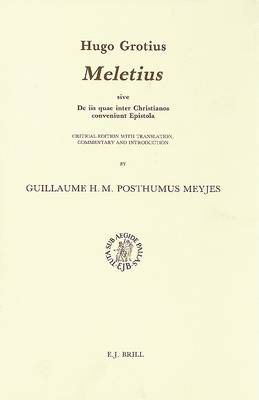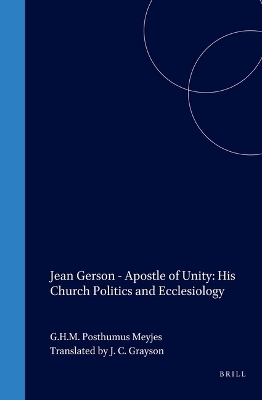Studies in the History of Christian Traditions
2 primary works
Book 40
Hugo Grotius – Meletius, sive de iis quae inter Christianos conveniunt epistola
by G.H.M. Posthumus Meyjes and Hugo Grotius
Published 1 June 1988
Book 94
Jean Gerson - Apostle of Unity: His Church Politics and Ecclesiology
by G.H.M. Posthumus Meyjes
Published 16 June 1999
The first part of this study on the famous chancellor of the Paris University, contains a chronological survey of Gerson's position in the development of the church-politics of his days. It is shown how he became a convinced adherent of a conciliar solution of the Western schism, without betraying the idea of the Church as hierarchical entity.
In the second part his ecclesiological ideas are treated more systematically. Gerson's critical attitude towards canon lawyers and papal absolutism is examined, followed by an analysis of the background of his ideas about the Church as hierarchy and as mystical body, his conciliar thought, his concept of tradition, and his sources. The author tries to make clear that Gerson, far from being a radical, rather should be considered as a careful and conservative theologian. The book comprises a revised and extended version of an originally in Dutch written thesis, for which the author was awarded the Mallinckrodt-prize of the University of Groningen.
In the second part his ecclesiological ideas are treated more systematically. Gerson's critical attitude towards canon lawyers and papal absolutism is examined, followed by an analysis of the background of his ideas about the Church as hierarchy and as mystical body, his conciliar thought, his concept of tradition, and his sources. The author tries to make clear that Gerson, far from being a radical, rather should be considered as a careful and conservative theologian. The book comprises a revised and extended version of an originally in Dutch written thesis, for which the author was awarded the Mallinckrodt-prize of the University of Groningen.

